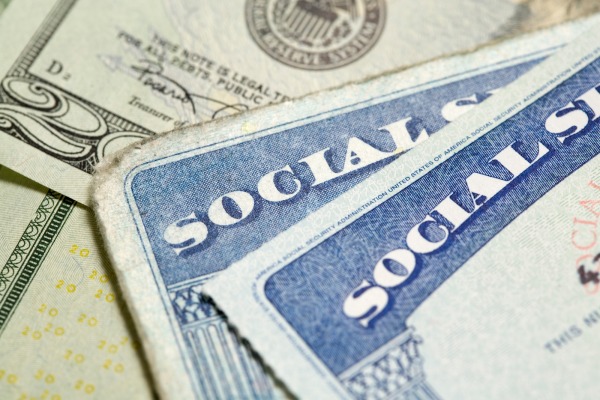
You walk onto a car lot and even before you test-drive a vehicle, the salesman asks you to fill out a credit application. Why is he asking you to do this? And what should you do?
Dealers say that they are struggling to meet increasingly complex government demands for information about their customers. But at the same time, experts warn consumers about the growing threat of identity theft and shady sales practices. This situation can sometimes put dealers and customers at odds and lead to misunderstandings.
But with a greater knowledge of credit rules, car buyers and dealers can find common ground: namely, a good loan for the car buyer and a sale for the dealership.
Here, then, are seven things to know about your credit report. A better understanding can speed up car shopping and clarify what can be an intimidating and confusing process.
1. Why is the salesman eager to get me to fill out a credit application?
The dealership uses the credit report both as a tool to increase sales and a way to protect itself from undesirable or even fraudulent shoppers, according to auto financing and car-selling experts.
Dealers know they have access to the best financing available, and they are eager to share these opportunities with their customers, says Marv Eleazer, finance director at Langdale Ford in Valdosta, Georgia. Almost 80 percent of his customers arrange financing through the dealership.
"The reasons are pretty clear," Eleazer says. "We generally get rates lower than most customers can obtain elsewhere and the amount we can typically get financed is greater than most local banks or credit unions." This is a huge benefit to customers who owe more on their trade-in than it is worth, he adds, because sometimes the dealer finance office can add this debt to the new loan.

Chris Cutright, a former car salesman, cites another reason dealers ask for a credit report. When people walk into a car dealership and request a test-drive, the dealer will want to know if they have the ability to pay for a car if they ultimately say they want to buy it. The fastest way to answer that question is to run their credit report.
Further, if a customer "looks kind of rough," a manager will want to protect the dealership's cars against theft or damage that might occur during a test-drive, Cutright says.
"Sometimes, just asking for a credit report will end the whole process." Other times, it shows that the customer really is capable of affording a car.
Of course, asking for permission to run a credit report before a test-drive requires good people-reading skills and diplomacy on the part of the salesperson. The last thing he wants to do is alienate a scruffy but qualified buyer.
Another reason dealerships like to get the credit application filled out early on is because it is a rapport builder for the salesman, Cutright says. Some shoppers fill out the application themselves, while other times a salesman can fill it out with information the consumer provides verbally. If the customer agrees to provide information for the credit report, this is a chance for the salesman to earn the customer's trust as they discuss their employment, salary and provide other personal information, he says.
Consumer advocates, meanwhile, caution that shoppers should not agree to have their credit run until they are ready to actually begin the vehicle financing process. If consumers have run their own credit report before car shopping (to ensure that there are no errors on the report, for example), they have nothing to gain by allowing a premature credit check.
Some dealers use the credit report for another, less consumer-friendly purpose, says Chris Kukla, senior vice president of the Center for Responsible Lending.
"The result of the credit report has an impact on what the buyer pays for the car, and whether they get a hard sell for additional products in the finance and insurance office," he says.
2. What information does my credit report contain and what does the dealership do with that information?
A person's credit report shows two things that are essential to getting a good car loan:
a. The report shows your financial history. It is a record of your ability to borrow money and repay it on time. It weighs about 30 different credit-related factors such as your payment history, amount of outstanding debt and the length of your credit history.
b. The credit bureau combines all the factors in your credit history into one numerical score commonly referred to as the FICO score. This ranges from 350 to 800, with the higher score being the best. The dealership will use that score as it contacts different lenders to determine if they will give you a loan and at what interest rate.
3. I'm paying cash. So why is the dealer asking to pull my credit report?
Federal consumer protection and national security laws require that dealers verify the identity of buyers, according to Bradley Miller, associate director of legal and regulatory affairs for the National Automobile Dealers Association (NADA). The Patriot Act has requirements meant to counteract terrorists who might use car buying to launder money. Other federal regulations, known as Red Flag Rules require dealerships to protect against identity theft. Pulling a credit report is a quick way to verify that the person presenting himself as a buyer isn't actually trying to steal someone else's identity.
In a legal sense, a dealer only needs a "permissible purpose" to access a person's credit, Miller says, and there are a number of such instances. Usually, it occurs when a consumer wants to take advantage of low-interest financing via the dealership. But it would also be permissible, for example, for a dealer to ask for a credit report before accepting a personal check from a customer. It may be the dealership's only hedge against taking a bad check when sales take place on evenings or weekends. That's when banks are closed, and it's difficult to verify that the funds are available.
4. Can the dealership run my credit without my knowledge?
It's not supposed to. The dealership is required to get your permission to run a credit report. Usually, the salesman asks you to sign a credit application. If you are shopping over the Internet, you can sign the application and send it back electronically, says Cutright, who managed Internet sales departments during his car-selling career.
A dealer does need a Social Security number to run a credit report. And in a few instances, dealers have asked for the customer's Social Security number, telling them that the Patriot Act required them to do so. Then the dealer used the number to pull the customer's credit report without permission.
In fact, the anti-terrorism law only requires a Social Security number for a cash car purchase of more than $10,000. It does not require a dealer to review a credit report, say attorneys from both NADA and the National Independent Automobile Dealers Association.

Sometimes customers fear that when the salesman asks for a driver license (as is often the case before a test-drive), he will use the driver license number to run a credit report. States can no longer use a Social Security number as a driver license number, so this is less likely to occur. If you have an older license that still lists your Social Security number as your license number, contact your registry of motor vehicles to get it changed.
5. If the dealership runs my credit, will my FICO score drop?
The first "inquiry" (a request for a credit report) has a minor impact on the credit score, but subsequent inquiries do not, says Melinda Zabritski, senior director of automotive credit for Experian.
"It's well known that consumers shop around when they are car buying," she says. So Experian, for example, groups multiple inquires occurring within a two-week period and they have no further effect on a consumer's credit score.

According to the Experian Web site: "10% of your credit score is based on inquiries or 'credit checks.' Every time you apply for credit, a 'hard inquiry' is placed on your credit report. Having too many hard inquiries could indicate to lenders that you're trying to overspend."
6. Besides the impact to my FICO score, are there other risks to having a dealership check my credit history?
It isn't a good idea to divulge personal information unless it is necessary. There is always the chance someone could take your Social Security number and other personal information and use it to access your bank or credit card accounts. So, despite his explanation of why dealerships do what they do, Cutright advises consumers to decline early invitations to run your credit.
"Only allow them to run your credit when you are certain you are interested in buying a car," he says.
7. Is there anything I need to do concerning my credit before I go car shopping?
Check your credit report yourself. This is the most recommended piece of advice by both dealership representatives and consumer advocates. Eleazer says to pay attention to the accuracy of the report and challenge any mistakes with the credit reporting agency. Resolving these problems ahead of time could raise your credit score and give you access to a wider range of finance options.
"I tell consumers to take advantage of one free credit report each year," says Shawn Petersen, regulatory, legislative and compliance counsel for NIADA. "Going into a car transaction armed with that information, and knowing what your credit report says, will show the dealer that you are knowledgeable."
That knowledge could help you avoid mistakes and save a lot of money in the long run.